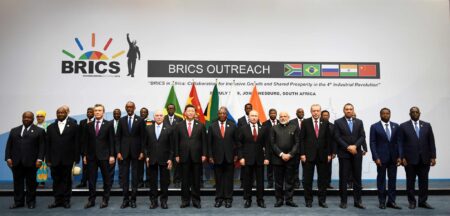If there is anything that the spread of the COVID-19 (Coronavirus) pandemic across the world leading to partial or total lockdown in several countries has taught us, is that we need to be prepared financially for any eventualities today more than ever.
Barely two months ago, people across the world were planning and budgeting for the New Year without the realization that soon many would be losing employment or experiencing a cut of their normal income.
The global pandemic has brought the world to a standstill. This is an unprecedented time of trying to manage our lives behind closed doors, reaching out to those who need our help, and somehow remain afloat with the minimal income we have left.
Although the pandemic is just in its early stages in East Africa and most African countries, we should be learning from other countries like China and Italy. If we adapt to the changing times, we will make it through better prepared and with less difficulty.
In response to the virus, the Kenyan government is promoting cashless transactions with an aim of reducing the risk of transmission of Covid-19 by exchanging paper/coin money. According to the Central Bank of Kenya, this “will also reduce the use of cash in the economy over the medium term.”
Addressing the nation on March 15, 2020, President Uhuru Kenyatta called on citizens to safeguard lives by observing the stringent measures put in place.
“This pandemic will test us, as it is testing all countries in every corner of the world, but I do not believe it will defeat us.” He rallied everybody to play their part, and work together to overcome the impacts of the challenge.
In Tanzania, just like the rest of East Africa, the government has directed all schools, colleges and universities to close, suspended all sporting events for the next 30 days and has banned public gatherings.
In a statement, President John Magufuli said: “This disease will pass just like how other diseases have passed.” He however, called on citizens to continue taking precautions as instructed by experts.
Keeping sober and stable
Today more than ever, you should ensure that you remain physically, psychologically and emotionally stable as this will consequently have an impact on your financial health. The opposite is also true.
In light of the current situation, here are a few key things you should consider:
Draw an emergency budget
The concept of emergency savings is not new to most people. At the moment however, it is a little too late to save for this particular emergency. But, you can create an emergency budget to get you through the crisis.
First things first. Your income may have reduced, if not stopped completely. Look at what you currently have in your checking and savings accounts. Next, analyse your past spending and see what you need to cut back on. Now, draw an emergency budget based on this new income and findings. You need to place the most important expenses at the top of the list. These include housing, medical expenses, food and other reasonable amounts towards transport or any other item that is a priority in your household.
Due to the isolation, there will be significant reduction of some expenses including entertainment, eating out, transport, fuel, parking fee, gym and many other personal expenses. These can be channelled to what you and your family need urgently.
Are you subscribed to any organization such as gym, or to a parking lot near your work place? Now is the best time to call them and put your fees on hold. Some companies are automatically supporting their members in this regard; however, if you have not received any communication from them, dial them up and do the necessary.
Some service providers are waiving certain fees. In addition to these, discuss with your family to see how you can scale back your service plans temporarily. Kenya’s telco Safaricom Plc for example, has waived fees for M-Pesa transactions below KSH1,000 (approx. US$10).
MTN, Uganda’s largest telecom as well as other mobile wallet providers are “waiving on-network transaction fees for lower-tier bands while Airtel has waived on-network fees for all tiers for the 30-day period,” an article published by New Vision read.
In neighbouring Rwanda, Rwanda Air announced it was rebooking tickets and/or refunding customers who had planned travel with the airline. This came after the airline temporarily stopped all flights for 30 days. These refunds or waived fees might seem little in the beginning, but every coin that you can save will have a great impact on your overall budget in the long run.
Loan deferrals
Additionally, if you have loans that you are servicing ensure that you get enough information on the lender’s revised payment plans before jumping into them. There could be hidden additional costs in the revised terms such as new interest rates. If you still can keep servicing the loan without a hitch, it advisable that you do so, lest you incur more expenses in the future. If not, talk to your lender to see what other options are available for you including putting a temporary freeze on your payments. You could opt to pay the monthly interest only until such a time that you can get back to the ‘normal’ payment plan if the lender allows it. Alternatively, negotiate with the lender to allow you to pay a little less for the next few months.
Avoid unnecessary debts
While at it, do not be tricked into borrowing additional money. If you must borrow, first reach out to family and friends and see how they can support you at this time of need. Of course at this moment, most people are sailing in the same boat as you with an uncertain future ahead.
Should you need additional support, make sure you do a thorough research and compare all borrowing options, fees, interest rates, and repayment terms before making the final decision.
Moreover, there could be other options extended by the government and other organisations to those who are in need, and this could save you from incurring additional costs. Financial assistance can come in various forms from your local municipality to other refined programs. Make sure you apply in time as such type of requests might take long to be processed. Remember, if you do not need such help kindly leave it to those who need it most.
Protect your well-being
COVID-19 is spinning the world so fast that you feel out of control. You do not need to panic. Stop, breathe and live each day as it comes. While you are isolated, create a new routine that takes into consideration healthy eating and exercising.
Make time to connect with loved ones physically if you are living with them or call them constantly. Lend a hand to the elderly and the vulnerable, wherever you can.
Most importantly, avoid stressing on things you have no control over or what isn’t possible to do right now. Focus on remaining mentally and physically healthy. By so doing, you are saving yourself from ending up in a hospital that is already strained by the victims of the virus and those who are critically ill.
Instead of worrying, fix broken items, re-arrange your room, clean and pack those clothes you have been meaning to give away for so long. Enrol in free online classes, teach a language or a certain skill to people online, write that book that you have kept postponing for so long, watch movies, or dance. Just live.
Bottom line, we are in this together, in isolation. Looking out for each other and helping out is really the only way to overcome this crisis successfully without going insane. Do not shy away from asking for help if you require it, and offer it freely to those who need it sometimes even without being asked.










